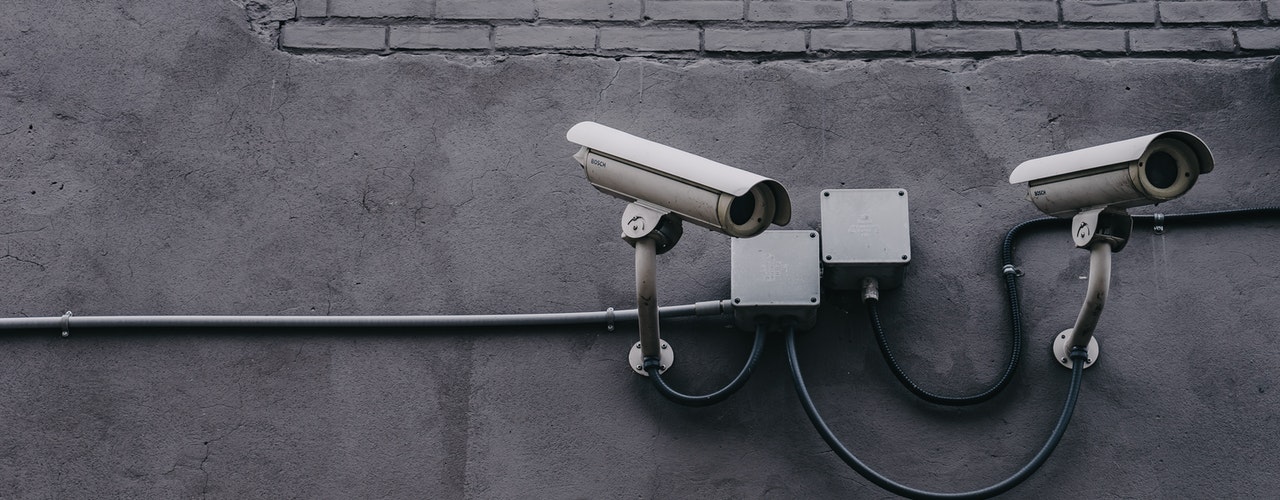16th of March, 2017
New Decision: Obligation to Install Surveillance Cameras
By: Lamiaa Youssef
Keywords: Retail & Consumer Goods, Commercial
A new decision obliges commercial, industrial, and tourism facilities In Cairo to install surveillance cameras and making it a prerequisite for obtaining/renewing their business shop license. Days ago, Cairo Governor issued Decree 12675/2016 (the “Decree”) making the installation of surveillance cameras, inside and outside facilities, a mandatory obligation on commercial and industrial stores. This is an endeavor from the state to control the prominent security problems Egypt is facing and to strengthen the stability of the security of the Egyptian streets.
The idea of installing surveillance cameras is not new. Several vital buildings and roads are already secured with surveillance cameras. The novelty in this Decree is the shifting of the duty and cost to the private sector and public entities covered with the Decree. This in itself may not be such a bad step.
What’s the Scope of the Decree?
- The Decree imposes an obligation that applies on all private commercial and industrial facilities, like malls, clothing stores, restaurants, hotels, gas stations, tourism facilities, hospitals, schools, etc.
- The Decree applies only on facilities located in Cairo governorate area.
- Stores in Cairo are required to install surveillance cameras not only outside but also inside the facilities.
- The Decree requires that the cameras should be situated in an unrestricted manner.
- Stores shall keep the maintenance of the cameras, check its efficiency and keep the visual records. The Decree did not specify the retention period for the store to keep the visual material.
- The Decree did not regulate the power of the authorities to have access to recordings produced by the cameras. However, this will be subject to the general principles of criminal law. If such recordings are relevant for any criminal investigation or trial, the processes and approvals set out in the criminal law will apply.
What is the Consequences of Violating the Decree?
Within one month from issuing the new Decree in the official gazette, i.e., before the 22nd of March 2017, every store in Cairo governorate must adjust its situation. After the before-mentioned duration passes by, installing surveillance cameras shall be one of the conditions of the issuing and renewing the commercial and industrial stores licenses. Stores will not be permitted to issue or renew their shop licenses, issued under Law 453/1954, before compliance.
Who Is The Competent Authority?
Municipalities shall be in charge for the inspection and checking of installing the cameras, periodically.
Privacy Issues Raised By This Decree:
According to the Egyptian Penal Code, restrictions on recordings and/or taking picture of a person only apply in private places in the meaning of the law. Commercial, industrial and tourism facilities are not considered as private places. Accordingly, no restrictions or duty to warn the public of such recordings exist.
What’s the Scope of the Decree?
- The Decree imposes an obligation that applies on all private commercial and industrial facilities, like malls, clothing stores, restaurants, hotels, gas stations, tourism facilities, hospitals, schools, etc.
- The Decree applies only on facilities located in Cairo governorate area.
- Stores in Cairo are required to install surveillance cameras not only outside but also inside the facilities.
- The Decree requires that the cameras should be situated in an unrestricted manner.
- Stores shall keep the maintenance of the cameras, check its efficiency and keep the visual records. The Decree did not specify the retention period for the store to keep the visual material.
- The Decree did not regulate the power of the authorities to have access to recordings produced by the cameras. However, this will be subject to the general principles of criminal law. If such recordings are relevant for any criminal investigation or trial, the processes and approvals set out in the criminal law will apply.
What is the Consequences of Violating the Decree?
Within one month from issuing the new Decree in the official gazette, i.e., before the 22nd of March 2017, every store in Cairo governorate must adjust its situation. After the before-mentioned duration passes by, installing surveillance cameras shall be one of the conditions of the issuing and renewing the commercial and industrial stores licenses. Stores will not be permitted to issue or renew their shop licenses, issued under Law 453/1954, before compliance.
Who Is The Competent Authority?
Municipalities shall be in charge for the inspection and checking of installing the cameras, periodically.
Privacy Issues Raised By This Decree:
According to the Egyptian Penal Code, restrictions on recordings and/or taking picture of a person only apply in private places in the meaning of the law. Commercial, industrial and tourism facilities are not considered as private places. Accordingly, no restrictions or duty to warn the public of such recordings exist.

New Decision: Obligation to Install Surveillance Cameras
16th of March, 2017
Keywords: Retail & Consumer Goods, Commercial
A new decision obliges commercial, industrial, and tourism facilities In Cairo to install surveillance cameras and making it a prerequisite for obtaining/renewing their business shop license. Days ago, Cairo Governor issued Decree 12675/2016 (the “Decree”) making the installation of surveillance cameras, inside and outside facilities, a mandatory obligation on commercial and industrial stores. This is an endeavor from the state to control the prominent security problems Egypt is facing and to strengthen the stability of the security of the Egyptian streets.
The idea of installing surveillance cameras is not new. Several vital buildings and roads are already secured with surveillance cameras. The novelty in this Decree is the shifting of the duty and cost to the private sector and public entities covered with the Decree. This in itself may not be such a bad step.
What’s the Scope of the Decree?
- The Decree imposes an obligation that applies on all private commercial and industrial facilities, like malls, clothing stores, restaurants, hotels, gas stations, tourism facilities, hospitals, schools, etc.
- The Decree applies only on facilities located in Cairo governorate area.
- Stores in Cairo are required to install surveillance cameras not only outside but also inside the facilities.
- The Decree requires that the cameras should be situated in an unrestricted manner.
- Stores shall keep the maintenance of the cameras, check its efficiency and keep the visual records. The Decree did not specify the retention period for the store to keep the visual material.
- The Decree did not regulate the power of the authorities to have access to recordings produced by the cameras. However, this will be subject to the general principles of criminal law. If such recordings are relevant for any criminal investigation or trial, the processes and approvals set out in the criminal law will apply.
What is the Consequences of Violating the Decree?
Within one month from issuing the new Decree in the official gazette, i.e., before the 22nd of March 2017, every store in Cairo governorate must adjust its situation. After the before-mentioned duration passes by, installing surveillance cameras shall be one of the conditions of the issuing and renewing the commercial and industrial stores licenses. Stores will not be permitted to issue or renew their shop licenses, issued under Law 453/1954, before compliance.
Who Is The Competent Authority?
Municipalities shall be in charge for the inspection and checking of installing the cameras, periodically.
Privacy Issues Raised By This Decree:
According to the Egyptian Penal Code, restrictions on recordings and/or taking picture of a person only apply in private places in the meaning of the law. Commercial, industrial and tourism facilities are not considered as private places. Accordingly, no restrictions or duty to warn the public of such recordings exist.
What’s the Scope of the Decree?
- The Decree imposes an obligation that applies on all private commercial and industrial facilities, like malls, clothing stores, restaurants, hotels, gas stations, tourism facilities, hospitals, schools, etc.
- The Decree applies only on facilities located in Cairo governorate area.
- Stores in Cairo are required to install surveillance cameras not only outside but also inside the facilities.
- The Decree requires that the cameras should be situated in an unrestricted manner.
- Stores shall keep the maintenance of the cameras, check its efficiency and keep the visual records. The Decree did not specify the retention period for the store to keep the visual material.
- The Decree did not regulate the power of the authorities to have access to recordings produced by the cameras. However, this will be subject to the general principles of criminal law. If such recordings are relevant for any criminal investigation or trial, the processes and approvals set out in the criminal law will apply.
What is the Consequences of Violating the Decree?
Within one month from issuing the new Decree in the official gazette, i.e., before the 22nd of March 2017, every store in Cairo governorate must adjust its situation. After the before-mentioned duration passes by, installing surveillance cameras shall be one of the conditions of the issuing and renewing the commercial and industrial stores licenses. Stores will not be permitted to issue or renew their shop licenses, issued under Law 453/1954, before compliance.
Who Is The Competent Authority?
Municipalities shall be in charge for the inspection and checking of installing the cameras, periodically.
Privacy Issues Raised By This Decree:
According to the Egyptian Penal Code, restrictions on recordings and/or taking picture of a person only apply in private places in the meaning of the law. Commercial, industrial and tourism facilities are not considered as private places. Accordingly, no restrictions or duty to warn the public of such recordings exist.
Insights
Disclaimer
The information included in this publication/client alert is not legal advice or any other advice. Publications and client alerts on this site are current as of their date of publication and do not necessarily reflect the present law or regulations. Please feel free to contact us should you need any legal advice related to the publication/client alert. Sharkawy & Sarhan (the “Firm”) will not be held liable for any compensatory, special, direct, incidental, indirect, or consequential damages, exemplary damages or any damages whatsoever arising out of or in connection with the use of the data, information or material included in this publication/client alert. This publication/client alert may contain links to third-party websites that are not controlled by the Firm. These third-party links are made available to you as a convenience and you agree to use these links at your own risk. Please be aware that the Firm is not responsible for the content or services offered by and of third-party websites, links as included in the Newsletter nor are we responsible for the privacy policy or practices of third-party websites links included therein.
Authorization of Use
The data, information, and material included in this publication/client alert are solely owned by the Firm. All rights related are reserved under the laws of the Arab Republic of Egypt. No part of this publication/client alert can be redistributed, copied, or reproduced without the prior written consent of the Firm.










